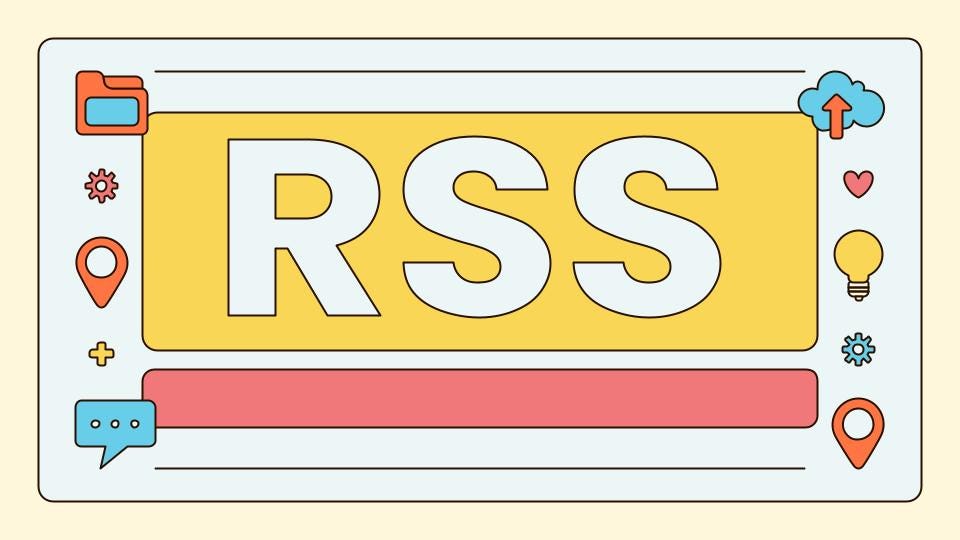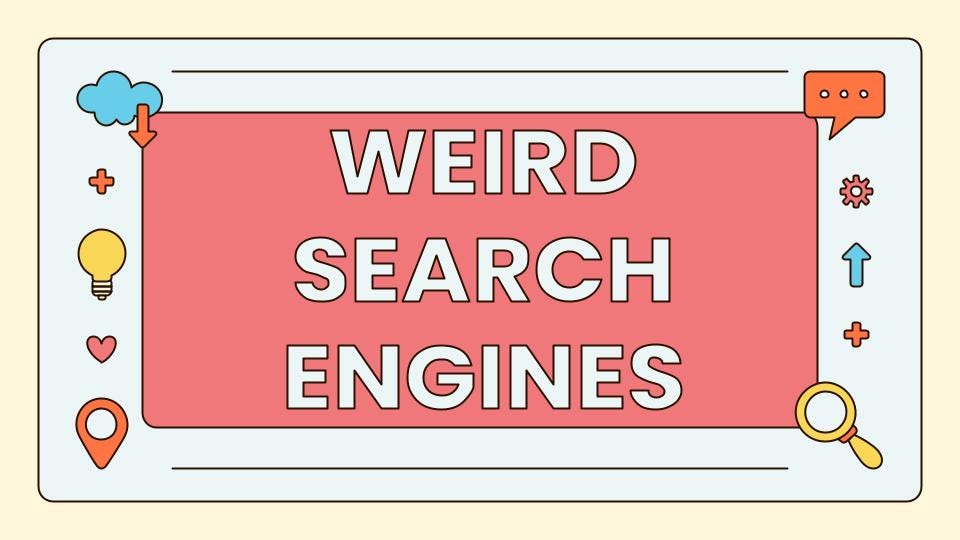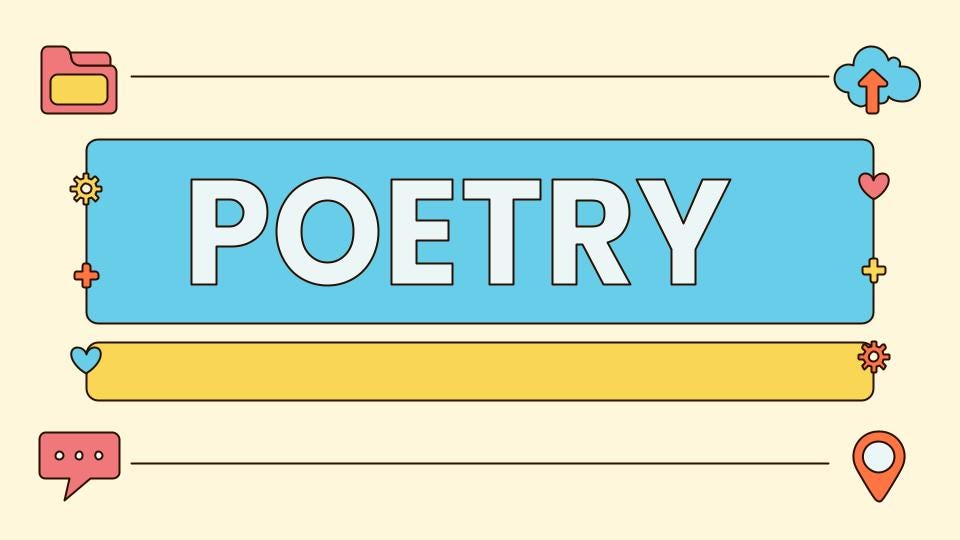A Quick Primer on “Rewilding Your Attention”
Length: • 7 mins
Annotated by happy
Highlights from my Medium Day talk on how I decouple my brain from social-media feeds
For two years now I’ve been working on strategies to “rewild my attention”.
What precisely is rewilding one’s attention? It’s about spending less time clicking on stuff that big-tech algorithms push in our direction — and more time cultivating a weirder, more idiosyncratic media landscape.
As I first wrote about his in 2021 ...
If you want to have wilder, curiouser thoughts, you have to avoid the industrial monocropping of big-tech feeds. You want an intellectual forest, overgrown with mushrooms and towering weeds and a massive dead log where a family of raccoons has taken up residence. [snip]
Instead of crowding your attention with what’s already going viral on the intertubes, focus on the weird stuff. Hunt down the idiosyncratic posts and videos that people are publishing, oftentimes to tiny and niche audiences. It’s decidedly unviral culture — but it’s more likely to plant in your mind the seed of a rare, new idea.
I’m a science journalist (and science nerd in general), so I love the life-sciences metaphor here, the mind as a garden. And, in an aspect fractal of the very idea of rewilding, I didn’t come up with the phrase “rewilding your attention”: It was a coinage of Tom Critchlow’s that I stumbled upon while reading the personal blog of CJ Eller. Meta!
Cool — but how precisely do you rewild your attention?
Today, I did a short talk for “Medium Day” about some of the attentional hacks I’ve developed over the last few years. I mentioned a bunch of resources I personally use, and promised to summarize them and link to them in a blog post.
So, forthwith, the list. Some Resources I Use For Rewilding Your Attention:

I use the RSS reader Feedly to follow about 430 web sites — a mix of personal blogs, news organizations, and niche websites devoted to everything from tech and science to visual art, philosophy, urban design, coding, cycling, guitar pedals, AI, culture, literature, and more. On my own, I’d never remember to check all these places. But a good RSS reader — you don’t need to use Feedly, there are tons of great options — will offer you a glanceable way to see the latest headlines from oodles of sites.
Bonus: I don’t use any of Feedly’s AI-brokered warez for ranking the “best” posts. Nah; I just slog through them all in reverse-chron.
It’s like panning for gold! It’s work. The vast majority of stuff these sites crank out is middling-to-low interest to me. But when I stumble upon something great, the delight is intense and vertiginous. Many of my favorite essays on Medium were sparked by offbeat posts/essays/stories I found using RSS. And it’s always stuff you’d never find going viral on any social network; awesomely weird mushrooms growing on the side of dank trees.

I speak particularly of nonfiction, here. Let’s leave novels aside for the moment; a noble form, but I’m thinking of deeply researched nonfiction books.
Forget newspaper articles, documentaries, and even the best stuff you see on social media or YouTube or whatever: A well-researched non-fiction book is the single most info-dense piece of culture in existence, full stop. Some author spent a few years — hell, a decade, sometimes — gathering material, sifting through it, then presenting you with the absolute most crucial stuff. Truly excellent nonfiction books thus the Christmas fruitcake of cognition: Chewy.
Me, I prefer to find nonfiction books that are ... out of left field. I want them to introduce me to a realm sufficiently foreign to my usual interests that I wouldn’t normally expect I’d even want to read it. This requires, like RSS, a lot of panning for gold. I’ll go to a library or a bookstore and do speed-dating. I find a shelf with the newest nonfiction releases, pick up a random book, and read a few pages in the first chapter. If it doesn’t grab me (98% of the time) I put it down and take another. If it does grab me, I get it.
One hack to keep costs down: I use Scribd, which for $12 a month lets me read gazillions of ebooks. They often don’t have the top bestselling nonfiction — but they do have all the weird, offbeat stuff, including tons of academic presses ... and that’s the material most likely to rewild my brain. For example, I’m reading Embattled: How Ancient Greek Myths Empower Us to Resist Tyranny, in which Emily Katz Anhalt ponders the deeply modern moral and civic lessons in poems like The Iliad and The Odyssey; The Programmer’s Brain: What every programmer needs to know about cognition, a study of the unique memory- and attentional demands of software programming; and Undrowned: Black Feminist Lessons from Marine Mammals, a series of meditations that gorgeous and almost uncategorizable genre-wise.

One of the Internet’s great gifts to humanity — and, like all gifts, occasionally its worst curse — is how easily it allows like-minded people find each and blab away into the wee hours.
Pick any subject matter in the world, and there’s a forum for it. Find that forum, and you’ll get a truly fascinating glimpse into the subculture therein, because obsessives talking to other obsessives are incredibly interesting, and a wonderful way to learn about a subject. Whenever I hear about a new subject, I do a google search for “[SUBJECT TK] forum” and boom, there it is. Invariably engrossing as hell, and mind-broadening.

Nonfiction books are amazing for expanding one’s imaginative vista. But even better are old books — by which I mean, from the 19th century and earlier.
Society was just sufficiently different enough that one can pick a subject area, but see it slant. Plus, the design and illustrations in old books cannot be beat; it’s a feast for the eyes! Even better, books before 1928 are in the public domain, and if they’re scanned, readable in full for free in the US. Go to the Internet Archive or Google Books, sort for out-of-print years, and type in a search query; you will quickly find incredibly odd and engrossing tomes.
I love weird old books so much that I created a special search engine — the Weird Old Book Finder. Type in a query, and it finds one randomly-chosen public-domain book that fits your interest and presents it for instant reading. (And here’s my essay explaining why I created it!)

Y’all know the main search engines. They’re great for quickly answering questions.
But if you want to find unexpected stuff to rewild your noodle, I love using oddball search engines. A few of my favorites including Marginalia Search, which is “an independent DIY search engine that focuses on non-commercial content, and attempts to show you sites you perhaps weren’t aware of in favor of the sort of sites you probably already knew existed”. (It also runs on a single PC in Sweden, so if you use it, kick the creator a donation, lol.) Another one is Wiby, which focuses on older sites; and there’s Million Short, a search engine that removes the top million most-popular sites from its results, so you get more subterranean material.
Another interesting one is Ooh! Directory. It’s an old-school throwback to the original Yahoo: A hand-curated directory of web sites, with an emphasis on ones run by individuals. It’s got a page that highlights the most recent posts by the sites in the directory, making it something like a low-fi RSS reader of a very specific blog-set.

I don’t read many novels; but I read a metric ton of poetry.
Why? I love the way poets use language, frequently in surreal and oblique ways. They also tend to wield metaphor — the most straightforwardly hallucinogenic literary technique we possess (a cognitive tool that insists one thing is another thing) — as a blunt-force hammer. If I need to jolt my brain out of its ruts, there is no faster way to do it than by reading a few poems.
A lot of people tell me they don’t like poetry because they worry they can’t figure out the poem’s “meaning”. I tell ’em not to worry about, or frankly even necessarily to care about, what the poem means. You can just enjoy the cognitive mouthfeel of the language. I mean, it’s great when the poems are meaningful and thought-provoking too! But they’re delightful even on a surface level.
So those are my main ones.
But I’m always collecting new ideas for rewilding resources! One I’ve just started exploring, for example, are networks of personal blogs — like at Write.as. It’s a lightweight, stripped-down blogging tool, so people tend to use it for personal writing; that link I gave you shows the most recently updated Write.as blogs.
If you have any of your own tips or tricks to share, put ’em in the comments!
(Enjoyed this one? Why then, hunt down that “clap” button and get clicking. It can be clicked up to 50 times, per reader!) clivethompson.medium.comJoin Medium with my referral link - Clive Thompson
As a Medium member, a portion of your membership fee goes to writers you read, and you get full access to every story...
I’m a contributing writer for the New York Times Magazine and Wired, and author of “Coders”. Follow me on Mastodon or Instagram.